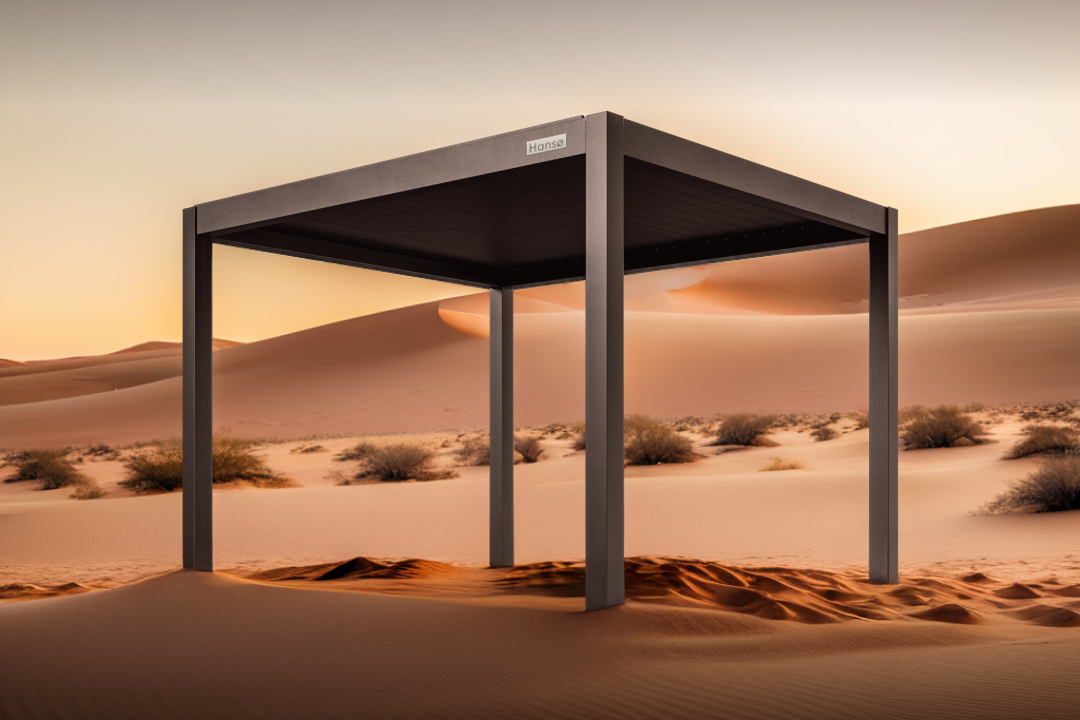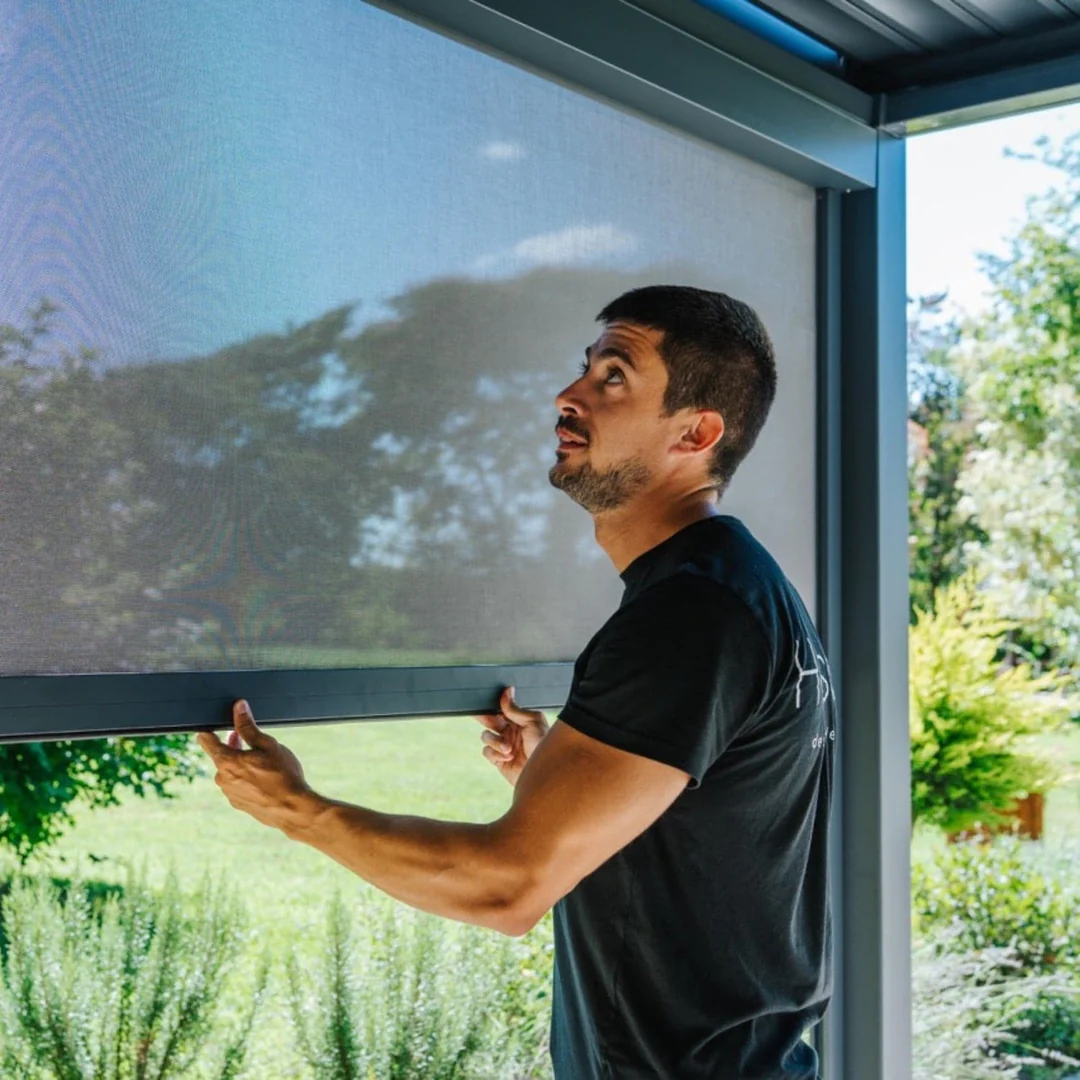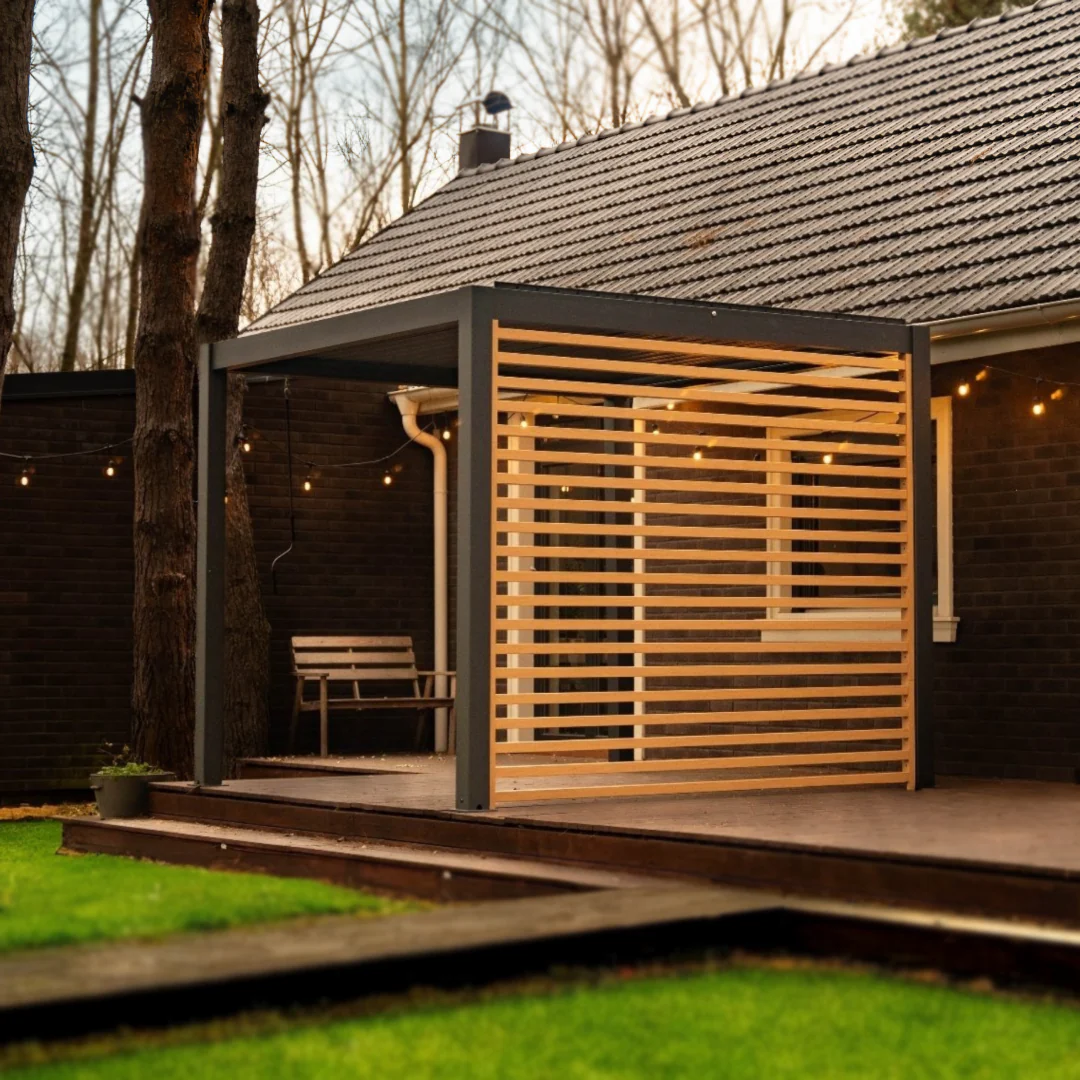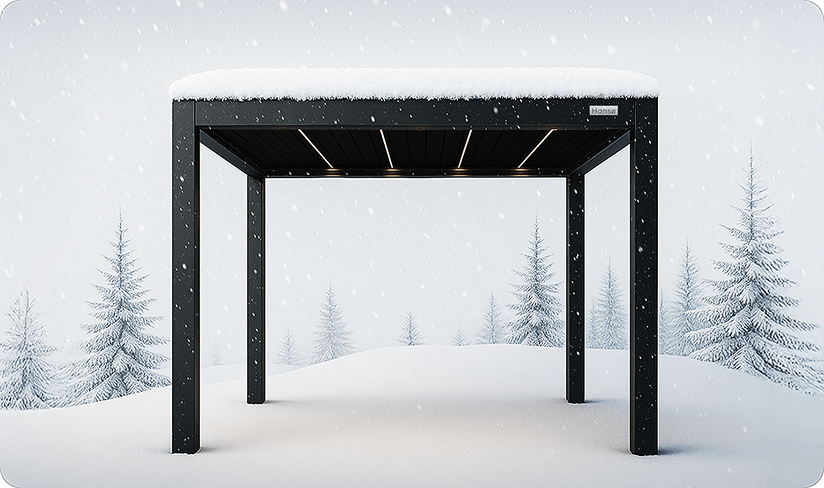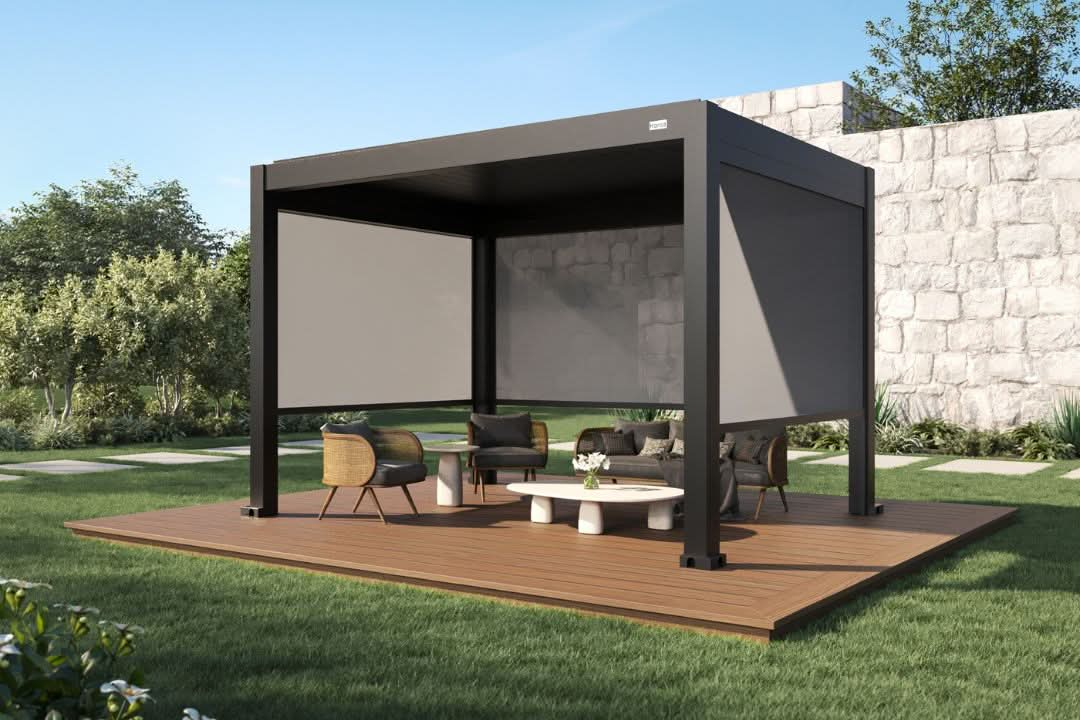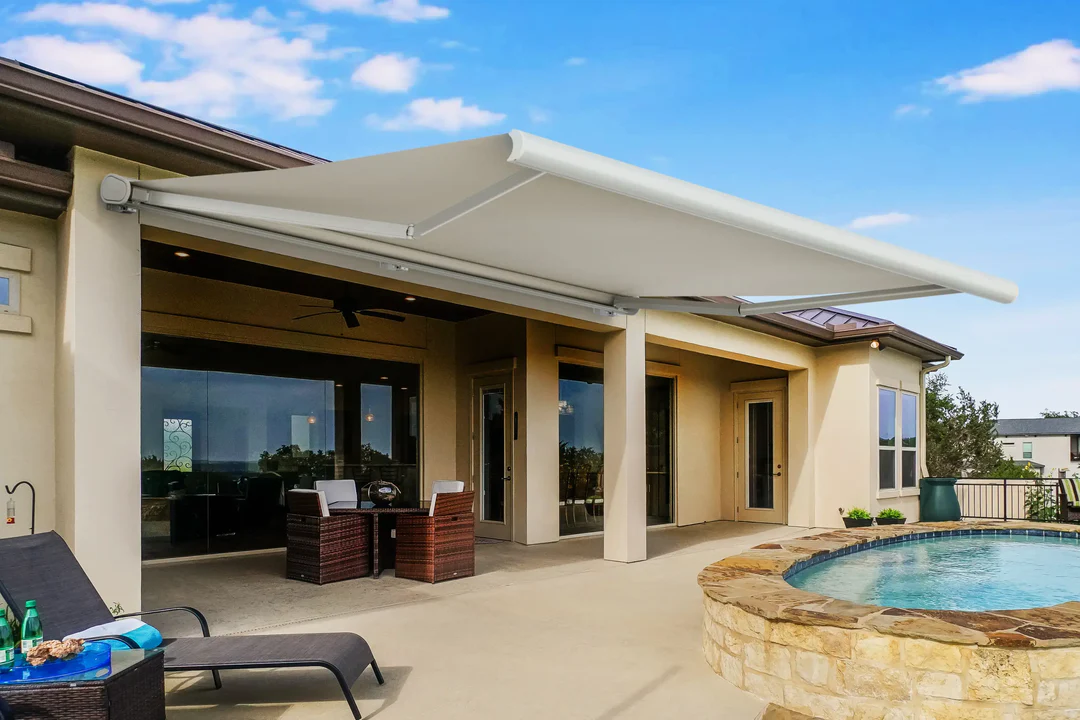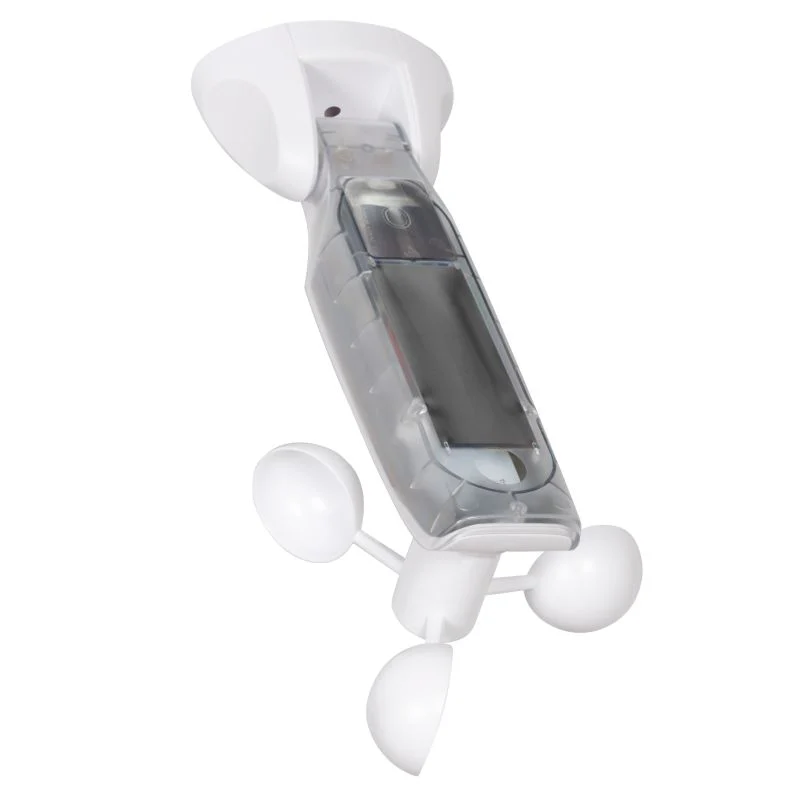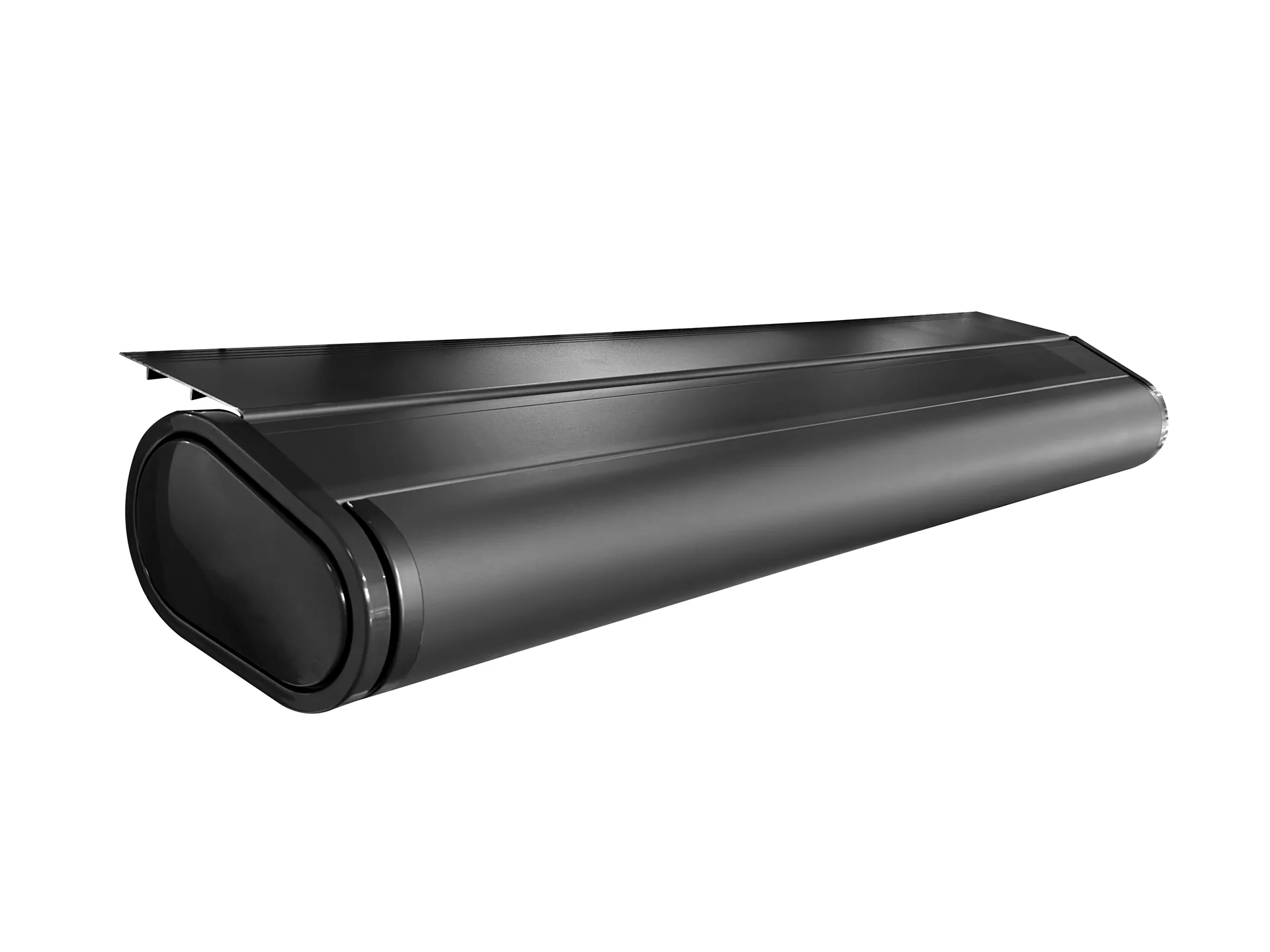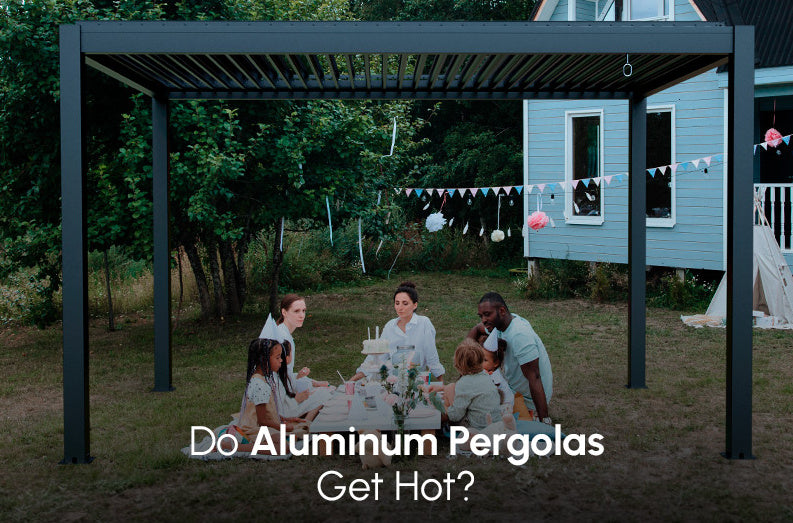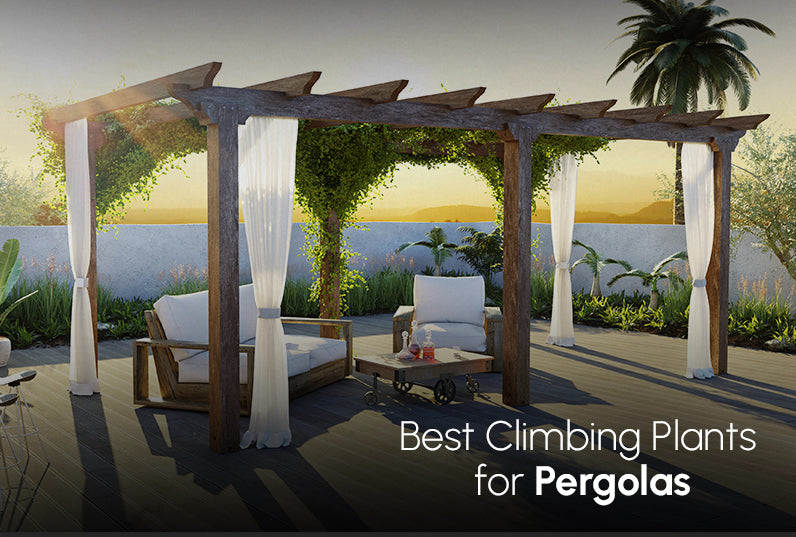Best Pergola Material: Vinyl, Wood, or Aluminum?

What makes your pergola stand out? The answer lies in the choice of pergola material.
- Vinyl pergolas are often praised for their affordability and low maintenance.
- Wood pergolas have a natural beauty that can complement any garden or yard.
- Aluminum pergolas are often praised for their modern looking, affordability and low maintenance.
Let's dive into the characteristics of these three materials and see which constitutes the most suitable and best pergola material for your outdoor structures.
Aluminum Pergolas: Why They May Be the Best Pergola Material
Have you ever considered aluminum pergolas for your outdoor living space?
When finding the best pergola material, aluminum has some distinct advantages that take a lot of work to overlook.
These advantages make aluminum a compelling choice for your pergola project.

Pros of Aluminum Pergolas
1. Exceptional Durability and Strength
One of the critical factors when choosing the material for your pergola is durability.
You want a structure that can withstand weather conditions, right?
Aluminum pergolas win hands down in this department. Aluminum, unlike wood or vinyl, does not rot or rust.
It does not warp or crack at extreme temperatures. Its resistance to UV rays and corrosion makes it an exceptionally durable material.
2. Low Maintenance and Long Lifespan
Aluminum pergolas require minimal maintenance, allowing you to enjoy your outdoor space more and spend less time worrying about upkeep.
You won't need to repaint or reseal an aluminum pergola like you would with a wooden pergola.
Moreover, aluminum pergolas don't attract pests. This means you won't have to deal with the damage and maintenance requirements of a problem.
Consequently, the longevity of an aluminum pergola significantly surpasses that of other pergola materials.
3. Lightweight and Easy Installation
Despite its strength and durability, aluminum is a surprisingly strong and lightweight material.
What does this mean for your pergola project?
It means that installation costs can be significantly lower compared to other materials.
Many homeowners find DIY pergola installation daunting, but the lightweight nature of aluminum pergolas makes this a viable option.
Prefabricated pergola kits made from aluminum are readily available, making the structure even more manageable.
4. Wide Range of Design Options
Lastly, and perhaps most enticingly, aluminum pergolas offer many design options.
You can use more than the traditional styles you might associate with wooden pergolas. Aluminum is a versatile material crafted into many styles to suit any backyard space, from classic and traditional to modern and minimalist.
The aluminum retractable louvered pergola stands out. This style, achievable with aluminum, offers a solid roof that can open and close, allowing you to control the amount of sunlight entering your outdoor living space. The best thing, is that, the price of the louvered pergola is affordable.
Furthermore, you can incorporate the wood textures into your aluminum pergola with a simple powder coating, emulating the charm and smoothness of the wood.
Cons of Aluminum Pergolas
1. Considering the Drawbacks: Aluminum Pergolas
Aluminum pergolas shine with their robust durability, low maintenance, and modern appeal. We could say that they don't have noticeable cons. Some people think that aluminum tends to be pricier.
Here's the deal:
It depens on vendor.
For example, choosing Hanso Home aluminum pergola kit, you will get both: affordable price and quality.
However, the cost of aluminum pergolas often reflects their quality and longevity. While it may seem like a more significant investment initially, the low maintenance and durability can offset this cost over time, making it a financially sound choice in the long run.
Remember, the best pergola material balances your budget, aesthetic preferences, and maintenance capacity. Could that be aluminum? Let's further compare it with vinyl pergolas to find out.
Taking a Look at Vinyl Pergolas
Vinyl offers a modern touch to your outdoor living space. It's a man-made material designed for durability, minimal maintenance, and weather resistance.
It's especially favored by those who want to avoid regular maintenance that other materials might require.
A vinyl pergola, sleek and uniform, becomes an inviting focal point in your backyard space.
A prefabricated vinyl pergola kit, often available, offers easy installation for a quick backyard transformation.
From enhancing outdoor entertaining areas to providing shade on a sunny day, vinyl pergola kits improve any outdoor space's functionality and aesthetic appeal.
As we delve deeper, it's clear that pergola materials vary widely, with each offering unique advantages. What makes vinyl stand out in this array of options?
Let's explore this further.

Pros of Vinyl Pergolas
1. Affordability and Cost-Effectiveness
What makes vinyl pergolas a popular choice?
The answer lies in their affordability. Vinyl offers a cost-effective solution for those looking to beautify their outdoor living space without breaking the bank.
2. Ease of Maintenance
Vinyl pergolas are also celebrated for their ease of maintenance. Unlike wood, which requires sealing or staining, vinyl pergolas require only an occasional rinse with a garden hose.
This low-maintenance characteristic makes vinyl a compelling choice for those who want to spend more time enjoying their pergola rather than maintaining it.
Cons of Vinyl Pergolas
1. Potential for Fading or Discoloration Over Time
Despite these impressive perks, vinyl pergolas aren't without their shortcomings.
One notable drawback is their susceptibility to fading or discoloration over time, especially when exposed to extreme weather conditions and UV rays (it is important to seek shade from 11 a.m. to 3 p.m.) This can limit the lifespan of the vibrant, fresh look of your pergola.
2. Limited Design Options
Moreover, vinyl pergolas offer fewer design options than their counterparts.
Customizations are often limited with vinyl pergola kits, and they may not offer the same level of aesthetic appeal as other materials. For homeowners with a specific design in mind, this can be a drawback.
Wooden Pergolas
Wood has long been regarded as one of the best pergola materials due to its natural beauty, versatility, and potential for customization.
Wooden pergolas add a charming, rustic touch to any outdoor living space, offering an undeniable aesthetic appeal that other materials struggle to match.

Pros of Wooden Pergolas
1. Natural Beauty and Aesthetic Appeal
The classic allure of wood pergola remains unrivaled. Its natural grain patterns and warm tones can enhance the aesthetics of your outdoor structure, making it a centerpiece in your backyard space.
2. Versatility in Design and Customization Options
The adaptability of wooden pergolas is another area in which they excel. Wooden pergolas and pergola kits offer practically infinite scope for personalization.
Cedar, pine, and pressure-treated wood are just a few examples of the many varieties of wood available to you.
3. Possibility of Staining or Painting to Match the Home's Exterior
Another advantage of wooden pergolas is the ability to stain or paint them to match your home's exterior.
This flexibility allows you to maintain a consistent design theme throughout your property, further enhancing its curb appeal.
Cons of Wooden Pergolas
1. High Maintenance Requirements
Despite its many benefits, wood comes with its set of challenges. Unlike low maintenance materials like aluminum or vinyl, wood pergolas require regular maintenance.
This includes periodic sealing or staining to protect the wood from weather conditions, UV rays, and to keep it looking fresh.
2. Susceptibility to Rot, Pests, and Weather Damage
Wooden pergolas can also be vulnerable to rot, pests such as termites, and weather damage. This susceptibility can affect the pergola's longevity and increase its overall maintenance requirements.
3. Unsafe
When using pergolas made of wood, you can injure your hand with small tree splinters if the wood is not properly maintained or prepared.
Conclusion: Final Verdict
Choosing the best pergola material depends on individual preferences and the specific needs of your outdoor living space.
- Vinyl pergolas, for instance, stand out for their affordability, low maintenance requirements, and durability against weather conditions. However, they offer limited design options and may provide a different aesthetic appeal than other materials.
- On the other hand, wooden pergolas offer a unique charm and aesthetic appeal, boasting versatility in design and the possibility of customization. Despite their beauty, they require regular maintenance and are susceptible to rot, pests, and weather damage.
- Among these options, aluminum pergolas have become a compelling choice for many homeowners. They offer a blend of durability, minimal maintenance requirements, and a sleek, modern aesthetic.Moreover, they are resistant to extreme temperatures, UV rays, and pests, offering a long-lasting addition to your outdoor structure.

